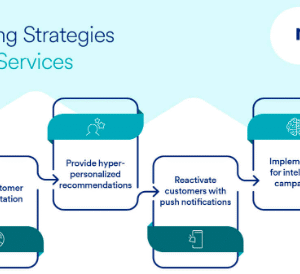In the era of digital transformation, businesses are no longer judged solely on products or services—they are judged on intelligence. Enterprises that leverage data effectively, automate processes, and predict outcomes gain a decisive edge. This is where Enterprise AI Solutions play a pivotal role.
From predictive analytics to AI-powered automation, these solutions help organizations optimize operations, enhance decision-making, and create personalized experiences at scale. For forward-thinking enterprises, AI is not a technology choice—it is a strategic necessity.
Understanding Enterprise AI Solutions
Enterprise AI Solutions are sophisticated systems designed to integrate artificial intelligence into core business operations. They combine machine learning, natural language processing (NLP), computer vision, and generative AI to analyze data, automate decisions, and generate insights.
Unlike general AI tools, enterprise solutions are:
-
Scalable: Capable of handling large datasets across departments.
-
Customizable: Tailored to specific business objectives and workflows.
-
Secure and Compliant: Built to adhere to industry regulations and data privacy laws.
These characteristics allow organizations to deploy AI effectively and extract maximum value from their data assets.
Why Enterprises Need AI Solutions
Modern enterprises generate enormous volumes of data every day. Yet, data alone does not create value—its interpretation does. Enterprise AI Solutions transform raw data into actionable intelligence that drives operational excellence and business growth.
Key drivers for AI adoption include:
-
Automation: Reducing manual workloads and improving efficiency.
-
Predictive Insights: Anticipating market trends and customer behavior.
-
Enhanced Customer Experience: Delivering personalized and proactive interactions.
-
Operational Agility: Responding quickly to changes in demand, supply, and market conditions.
By addressing these critical needs, Enterprise AI Solutions enable companies to remain competitive in rapidly evolving markets.
Components of Enterprise AI Solutions
Building robust AI systems requires several interconnected components:
1. Data Management and Curation
High-quality data is the foundation of any AI system. Enterprises must collect, clean, and structure datasets from multiple sources to ensure model accuracy.
2. AI Model Development
Models are trained to identify patterns, make predictions, and optimize outcomes. For example, a sales forecasting model can help predict revenue trends, while a predictive maintenance model minimizes machinery downtime.
3. Integration with Enterprise Systems
Enterprise AI must integrate seamlessly with CRMs, ERPs, and other business software to drive actionable insights without disrupting existing workflows.
4. Continuous Monitoring and Optimization
AI models evolve over time. Monitoring performance and retraining models ensures they remain accurate and reliable in dynamic business environments.
Real-World Applications of Enterprise AI Solutions
Enterprise AI Solutions have transformative applications across industries:
-
Finance: Fraud detection, credit scoring, and algorithmic trading.
-
Healthcare: Predictive diagnostics, patient monitoring, and clinical workflow optimization.
-
Retail: Customer segmentation, dynamic pricing, and inventory forecasting.
-
Manufacturing: Predictive maintenance, quality control, and robotic process automation.
-
Logistics: Route optimization, demand forecasting, and supply chain visibility.
In each case, AI enables organizations to make faster, data-driven decisions while improving efficiency and reducing risk.
Benefits of Enterprise AI Solutions
Implementing AI at the enterprise level brings measurable advantages:
-
Operational Efficiency: Automation reduces repetitive tasks and resource wastage.
-
Better Decision-Making: Predictive analytics and insights guide strategic choices.
-
Cost Optimization: AI minimizes errors, reduces downtime, and improves productivity.
-
Personalization at Scale: Tailored services increase customer satisfaction and loyalty.
-
Innovation and Growth: AI enables experimentation, faster iteration, and scalable solutions.
These benefits make AI not just a technology investment but a critical business strategy.
Challenges and Best Practices
Despite the benefits, enterprises often face challenges in AI adoption:
-
Data Quality Issues: Poor or biased data can reduce model performance.
-
Legacy Systems: Integration with outdated systems can be complex.
-
Skill Gaps: Lack of AI expertise slows deployment.
-
Ethical and Compliance Concerns: Privacy, bias, and transparency must be managed.
Best practices include partnering with data providers like Macgence, implementing governance frameworks, and investing in staff training.
The Role of Macgence
High-quality data is the backbone of any successful Enterprise AI Solution. Macgence specializes in delivering curated datasets for AI applications across industries. From annotated images to multilingual text and audio datasets, Macgence ensures that AI models are trained on reliable, ethical, and scalable data.
By providing end-to-end support for data collection and preparation, Macgence empowers enterprises to build robust, high-performing AI solutions that drive measurable business outcomes.
The Future of Enterprise AI
The next generation of Enterprise AI Solutions will focus on:
-
Generative AI: Producing insights, content, and solutions autonomously.
-
Adaptive AI Models: Continuously learning from evolving datasets.
-
Cross-Functional Integration: AI systems operating across departments seamlessly.
Enterprises that embrace these technologies today will not only optimize their current operations but also define the future of innovation in their industries.
Conclusion
Enterprise AI Solutions are transforming the way businesses operate, innovate, and compete. By integrating AI into core functions, enterprises can automate processes, generate predictive insights, and deliver exceptional customer experiences.
With trusted partners like Macgence providing high-quality, domain-specific data, organizations can deploy scalable, ethical, and future-ready AI solutions — ensuring long-term success in a data-driven world.





